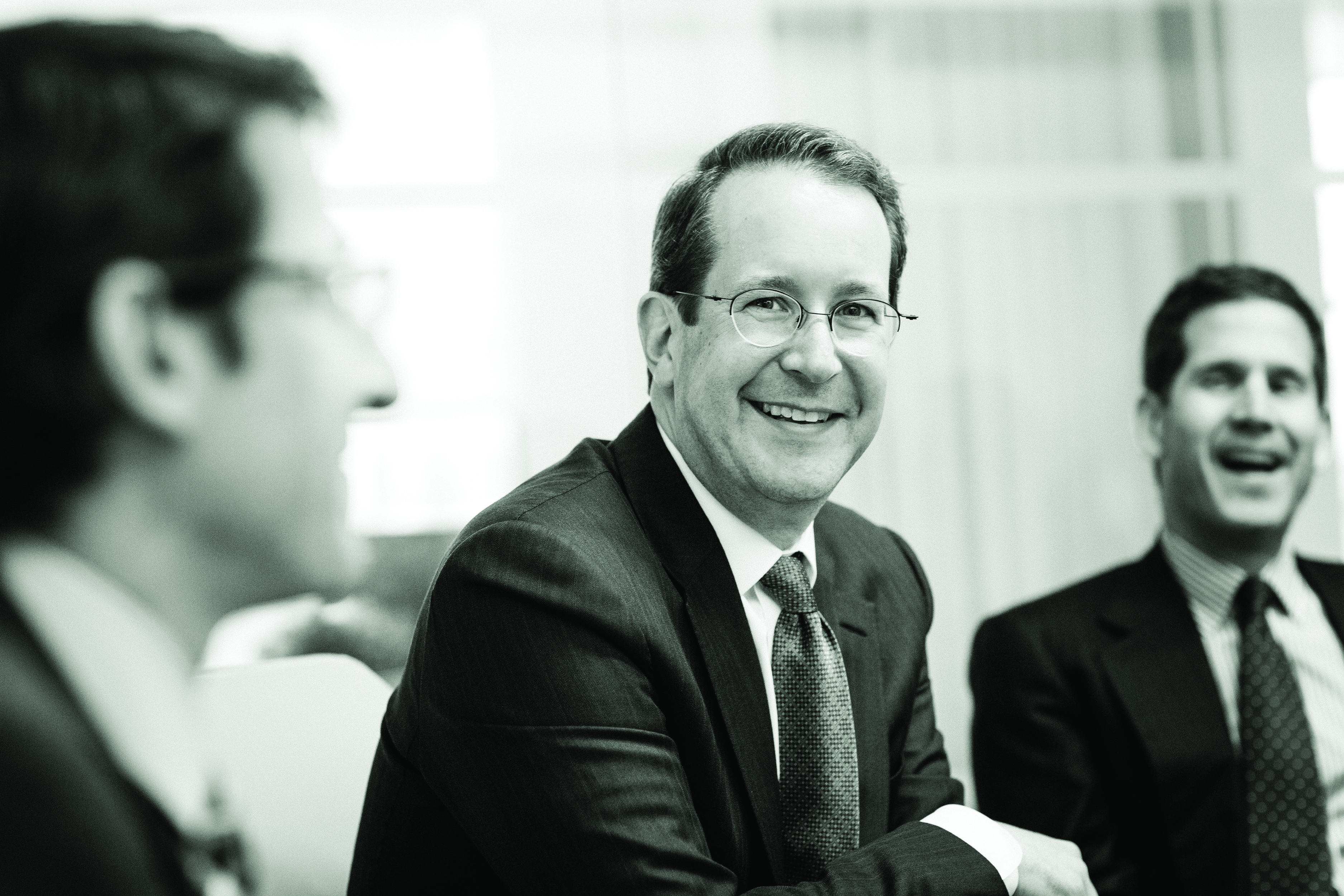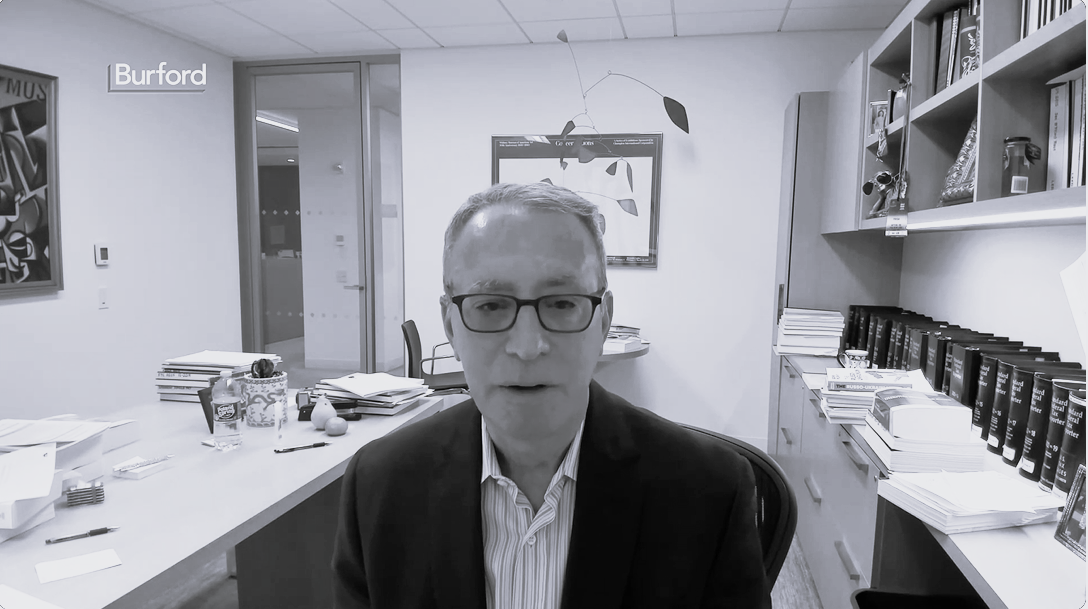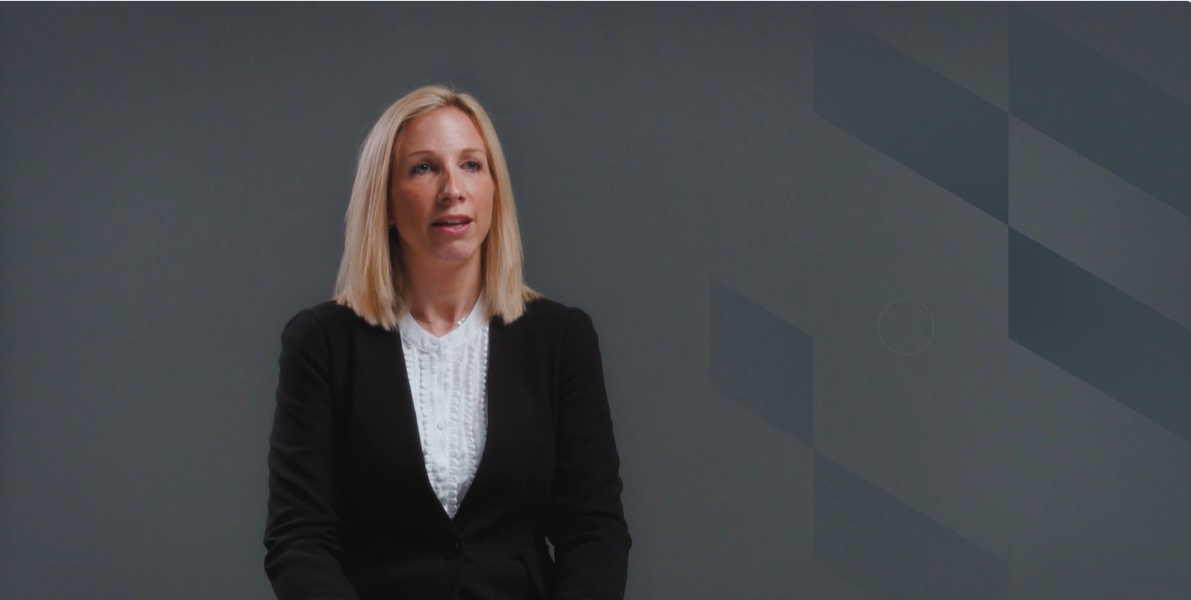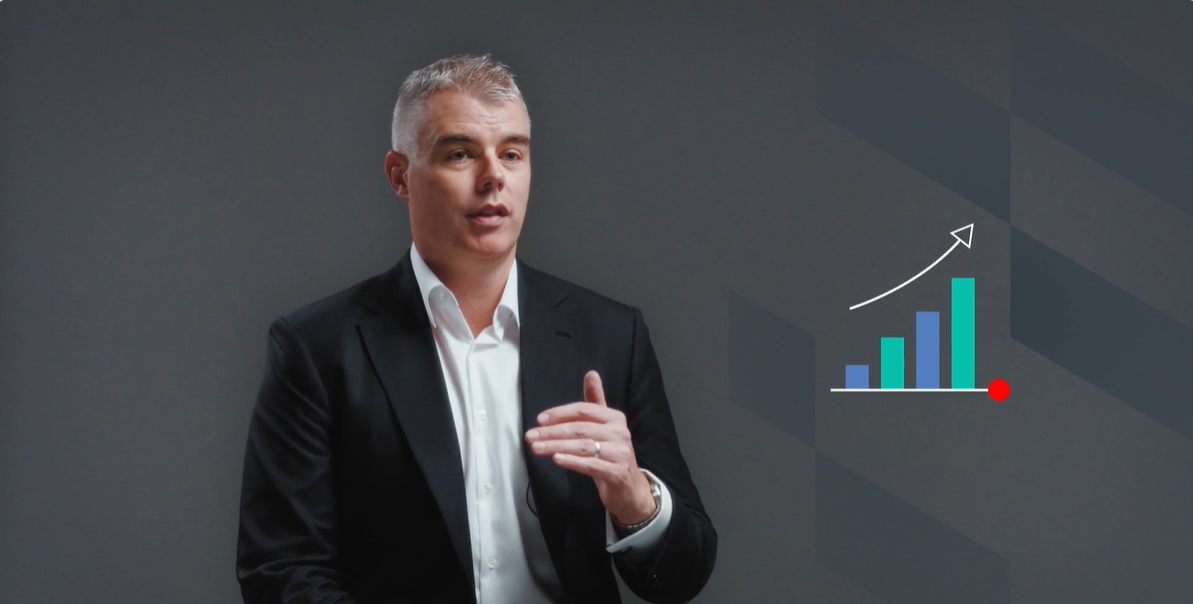Liz Bigham: Chris, to start us off Burford's most recent shareholder letter states that 2023 was a remarkable year for Buford's business. What achievements stand out to you, particularly in so far as they benefit our clients?
Christopher Bogart: 2023 was a watershed year for Burford. And I think it's because there is so much activity going on in the legal finance space with our corporate clients. So, what we saw in 2023 was a significant uptick, both in court activity, allowing clients to get their cases through the court system, which had been slowed somewhat by the pandemic, but also characterized by continued large and innovative use by corporate clients of our capital.
For example, during the course of the year, we did a $325 million financing for a Fortune 50 company that was against a portfolio of healthcare related legal claims. That case obviously is much larger than just the costs of the legal fees and expenses associated with bringing those cases. Instead, it's an opportunity for companies to take often unloved assets that are pending litigation and turn them into operating cash that can be plowed back into the business and profitable use can be made of that cash.
So that's a trend that we're seeing. That’s the largest of those deals that we've ever done. And so, that represents the continued seismic shift in the client population of using our capital not only to meet the burdens of ongoing legal fee expenses, which is certainly a core part of our business, but also the ability to take capital off the table against the expected future value of litigation. So that's a really key development during the course of the year. And it contributed to us doing more than a billion dollars of new business during the year with corporate clients and law firms. It contributed to us building our portfolio to what is now more than $7 billion of litigation value.
Then, it's hard for us to not close out the year by noting a singular success in the Federal Court in New York where our financing and litigation management services resulted in our client of an insolvent company in Spain achieving more than a $16 billion judgment from the Southern District of New York, the largest in New York history.
LB: Burford turns 15 in 2024. What has changed in the commercial legal finance sector in the last 15 years and what has remained steady?
CB: I think the fundamental thing that has changed is really ubiquity. It's the fact that when we started this business 15 years ago, lots of people when we spoke to them about this concept had no idea what we were talking about and weren't seriously considering its use. And that really has changed today.
It's rare for us to encounter an in-house lawyer or a law firm partner who isn't familiar with at least the basic concept of legal finance. The idea that that there are more efficient things for businesses to do with their capital than to spend it, have it run through the P&L and have it negatively impact the expense budget of the company on highly priced lawyers. It's a better use of your capital, just like leasing capital equipment is. It's a better use of business capital to put it into operating activities that generate profits and on which shareholders will pay a multiple.
And it's better to use our capital not only to defray the cost of pursuing litigation, but also possibly to take advantage of the inherent value embedded in that. So that's, I think, the fundamental change—the evolution of the market. Today I think it's commonplace for companies to think seriously about the economics before they embark on a piece of litigation.
I think what hasn't changed is the way we go about doing this business. Burford is 170 people around the world. All of us are graduates of the large law firms and boutiques of the kind that our clients work with. We provide a level of engagement and professionalism that is unmatched in the market, which is why we are far and away the brand in the market that is most known by GCs and CFOs as well as by law firm partners. There are certainly other people in this market, but they are all smaller than we are, often by orders of magnitude, and they go about this business very differently than we do.
This is what we do, this is all we do. Our DNA is about serving corporate clients and helping them rationalize economically the way that they go about managing the cost of their legal disputes.
LB: Chris, lastly, what trends do you foresee in the near future in the legal finance sector?
CB: Well, the overarching trend, I think is the concept of again just more use of this capital. Every year that goes by, we see two things happening.
First, we see more and more clients coming to us for what is often in the first instance basic litigation financing, the P&L relief associated with us paying the legal fees associated with bringing a case forward instead of the company having to have that come out of its operating budget and run through its P&L and reduce its earnings. Many of those relationships turn into broader multi-case relationships that also include monetization components, the ability for companies to pull forward the expected cash value. So. that's an overarching trend and that's happening around the world. What I would note is again, the global proliferation of this as well.
When we started life, we were a small group of people just sitting in New York with capital we raised in London. Today, Burford is all over the world, and we're seeing that be in response to the demand of that we feel from all sorts of various parts of the legal ecosystem.
For example, globally we're seeing increases in insolvency matters as companies contend with higher interest rates and turbulent economic conditions. We're seeing increases in antitrust and competition cases as you see aggressive enforcement in the US and in Europe. More regionally we're seeing an awful lot of activity in Latin America. Where there is a meaningful growth in Latin American arbitration activity, in the Middle East there is obviously been a construction boom. Every big construction project seems leads to some follow-on dispute.
When you combine that with the aftermath of the global financial crisis, which the financial institutions in the Middle East are still contending with, that has been sufficient for us to open last year, a new office in Dubai. Then in Europe, which remains our strong second largest market where we're a very significant player including, for example, being the leading player in in markets like Germany. There is just a general increase in the level of litigation activity that we see. There's almost a cultural phenomenon going on there where there was a historical reluctance to engage in business litigation that has now been replaced by a realization that companies, when they have reasonable claims to bring should be bringing them for the benefit of their shareholders. So, we're seeing a lot of activity in many sectors around the world.
I think that will continue as companies continue to feel like they should be, they should be husbanding their liquidity for their business operations and, and not for us and not for litigation. But where that, where that takes us overall is a lot of excitement about the future. We see real demand from all segments of the market, as I've touched on. Burford has set itself up to be a business partner to corporate clients and to law firms around the world. It's something that we're purpose built to do, and we're very excited about being able to meet your particular needs in 2024 and beyond.





